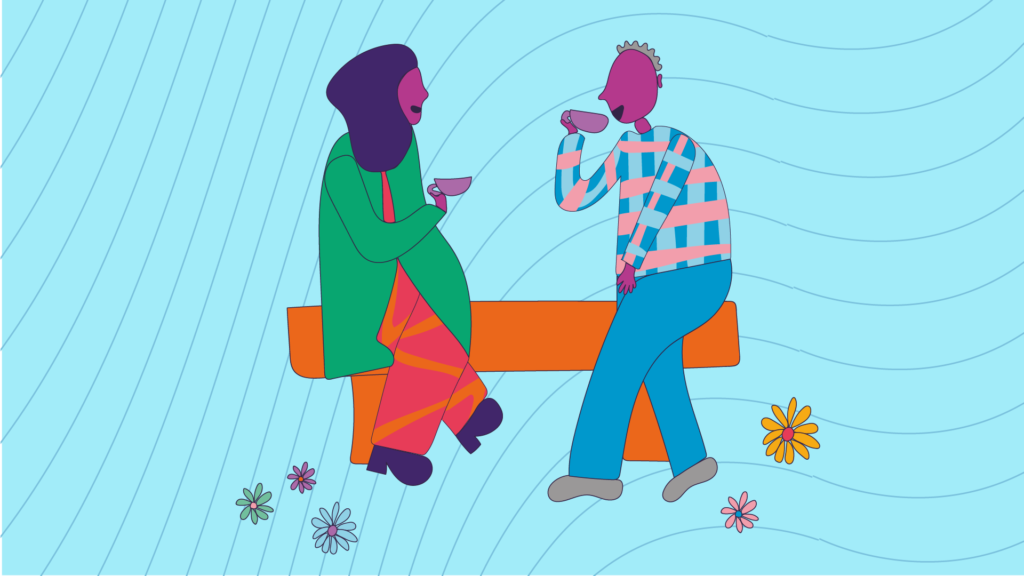Connecting with Others
We value connecting with others because we are driven to interact and seek social closeness.

Early in development, we form attachments to our primary caregivers who satisfy basic needs for hunger, warmth, and protection, and then we continue to develop a number of social relationships with family, friends and partners.
Socialising evokes emotional rewards in the brain which makes us feel good and helps us to develop strong emotional bonds. For example, a hug releases the feel good hormones serotonin and dopamine, as well as oxytocin, important for developing bonds.
Connections play an important role in social learning; other people provide reference points for our own actions and behaviour.
The benefits of social connections are far-reaching, not only are they important on our emotional health and wellbeing, they have benefits to our physical health too. e.g. research has shown that healthy social connections have reduced blood pressure, lowered stress levels and a boosted the immune system.
An inability to fulfill social needs can result in feelings of loneliness, isolation, and sometimes depression. Loneliness is noticeable in older people when their social networks have narrowed and meeting new people is difficult.
In a digital age we spend a lot of time connecting with others online, with over three quarters of adults using online platforms to help maintain relationships. Active social media users now represent 31% of the global population.
In lieu of the physical intimacy that is lost online, people can still experience some emotional benefits if using online platforms to connect to others. For example, research demonstrated that interacting on social networking sites can trigger similar hormones that are produced whilst interacting in face-to-face. The key is active communication.
Want to learn more?
Read all the details, including how this value presents itself through who we are, what we have, do and need, in our Human Values Research Paper
